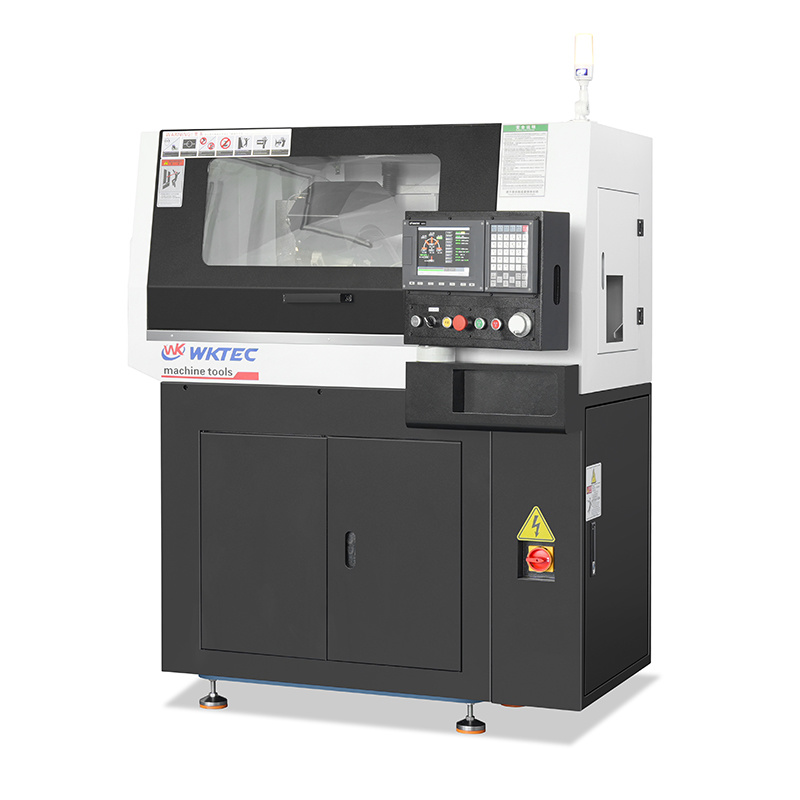What Materials Can Be Machined on a Swiss CNC lathe?
Time:
Apr 19,2025
What is a Swiss-type lathe 1107?
Swiss type lathes 1107 are a specialized type of Swiss CNC lathe. Swiss lathes are designed for machining small, complex parts with a high degree of accuracy. They typically have a diameter capacity of less than 7 mm and can operate at extremely high speeds, making them well suited for machining high precision parts.
Swiss-type lathe machines generally have a wider variety of tooling options than other types of CNC lathes, which further enhances their versatility. Swiss-type lathes are used in a wide range of industries, including the medical, aerospace, and automotive industries.
In some cases, Swiss machinists may also be responsible for training other workers on how to operate Swiss-type lathe machines. Some machinists may also choose to pursue formal education in engineering or a related field. To be successful, they must be able to read and understand technical manuals and blueprints and be able to perform complex mathematical calculations. Swiss machinists must also be able to identify and troubleshoot problems with the CNC Swiss machine or the parts being produced.
What Materials Can Be Machined on a Swiss CNC lathe?
Swiss CNC lathes can machine a wide variety of materials including plastics, composites, and a wide variety of metals, such as:
Aluminum – used in the automotive, aerospace, and construction industries for its lightweight and corrosion-resistant properties.
Steel – commonly used in the automotive, aerospace, and construction industries.
Stainless Steel – often used in medical and dental equipment, food processing, and aerospace industries.
Titanium – used in aerospace, medical, and military industries due to its strength-to-weight ratio and biocompatibility.
Brass – often used in the plumbing, electrical, and musical instrument industries.
Copper – commonly used in electrical and plumbing applications.
Bronze – often used in bearings, bushings, and marine applications.
Inconel – used in aerospace, nuclear, and chemical industries due to its high temperature and corrosion resistance properties.
Hastelloy – used in the chemical processing and nuclear industries for its high-temperature and corrosion-resistant properties.
Monel – often used in marine and oil and gas industries due to its corrosion-resistant properties.
The specific metal that can be machined on a Swiss CNC lathe may depend on the machine’s capabilities, tooling, and cutting fluids used.
Would Purchasing a Swiss CNC Lathe Benefit My Machine Shop?
Determining whether a Swiss CNC lathe will benefit your manufacturing facility depends on several factors, including the types of parts you produce, the volume of production, the level of precision and accuracy required, and the available resources and budget.
Here are some key factors to consider when evaluating the potential benefits of a Swiss CNC lathe for your facility?
Part complexity: If your facility produces small, complex parts with tight tolerances, a Swiss CNC lathe can be a highly effective solution. These machines are designed to handle complex geometries and produce parts with high precision and accuracy.
Volume of production: Swiss CNC lathes are ideal for high-volume production of small parts. If your facility produces a high volume of parts, a Swiss CNC lathe can significantly increase efficiency and reduce lead times.
Quality control: Swiss CNC lathes are equipped with advanced monitoring and control systems that ensure high-quality production. If your facility requires consistent quality control, a Swiss CNC lathe can provide the necessary level of precision and accuracy.
Labor costs: Swiss CNC lathes are highly automated, which can reduce the need for manual labor and increase efficiency. If labor costs are a concern, a Swiss CNC lathe can be a cost-effective solution.
Ultimately, the decision to invest in a Swiss CNC lathe should be based on a careful evaluation of your facility’s specific needs and resources. It’s important to work with an experienced supplier or manufacturer to ensure that you choose the right machine for your operation.
Keywords:
What is a CNC lathe? How to solve the problem of CNC lathe machining
2024-03-01
Wedge-Type Y-Axis CNC Lathe VS Real (True) Y-Axis CNC Lathe
2023-12-21
In CNC milling, down milling or up milling?
2023-12-21


